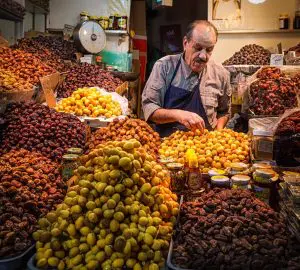Last month, Export Connect – in partnership with Investment NSW and the Department for Trade and Investment South Australia – hosted an inbound buyer mission featuring the Head of Sales from Chef’s Garden and Retail Manager from Feather and Bone. Following the Market Insights Presentations in Sydney and Adelaide, valuable first-hand insights were shared about the Hong Kong market.
About the Buyer: Chef’s Garden
Chef’s Garden is a leading Hong Kong’s food supplier and wholesale distributor of premium foods, importing fresh, frozen, dried fruits and vegetables, dairy products, preserves, confectionery, and fresh and delicatessen meats. They work directly with international food & beverage suppliers to import high-quality, sustainable, and safe products to Hong Kong. Chef’s Garden supplies 2,500+ customers, including some of the city’s best-known restaurants, bars, hotels, resorts, and retailers for almost 20 years.
About the Buyer: Feather & Bone
Feather & Bone is a premium butcher, grocer and deli with ten locations across Hong Kong, of which six feature all-day dining restaurants. Established in 2015, they work directly with farmers and artisans to offer fresh fruits and vegetables, premium meats, artisanal cheeses, gourmet pantry items, premium wines, fresh coffee and baked goods.
Q&A Session Insights
Question 1: From your perspective, what are the key economic factors, consumer trends and channel trends in Hong Kong?
Overall, Hong Kong is a highly developed free market economy, with low taxation and barriers to entry. Consumers in Hong Kong are technologically advanced and prefer shopping online and making digital payments. Within the last few years, e-commerce has grown around 25% and continues to grow rapidly. Consumers in Hong Kong are seeking convenience, value-for-money and competitively priced products. Retailers in Hong Kong are also seeking to fully integrate the online and offline experience, with the majority of retailers now offering online shopping experiences to prompt customers. Following Covid, consumers are still looking for that convenience factor and grocery and food delivery platforms are more popular than ever.
Question 2: Which food and beverage categories present the strongest opportunities in Hong Kong?
Fresh produce including fruits and vegetables are exhibiting high demand in the Hong Kong market. Hong Kong consumers prefer premium and imported fresh produce varieties. Secondly, health and organic products are also on the rise. Following the pandemic, Hong Kong consumers are more health-conscious and are seeking organic, plant-based/vegan, gluten-free and superfood products. Craft beer and spirits is another category of opportunity in Hong Kong, reflecting a growing appreciation for unique and high-quality alcoholic beverages.
Question 3: What are the biggest challenges and barriers for Australian food and beverage exporters seeking to enter the Hong Kong market?
The Hong Kong market, in my opinion, is characterised by strong competition. Our goal is to find high-quality imported products, particularly those with health benefits. Given the different cultures and purchasing habits of Asian and Western consumers, it is essential for Australian exporters to conduct in-depth market research to learn about the Hong Kong market’s size and consumer preferences. It is important to remember that Hong Kong is a price-sensitive market, and exporters and retailers work hard to keep their pricing margins competitive. As a result, prior to entering the market, a price strategy must be carefully thought out.
Question 4: What advice would you give to a potential exporter seeking to enter the Hong Kong market?
If you are considering exporting to Hong Kong, I suggest conducting market research as mentioned in the previous question and most importantly understanding the presence of competitors offering similar products. Building a strong relationship with local parties such as distributors can facilitate smoother negotiations. Hong Kong is a dynamic market so be prepared for potential changes and adapt your product accordingly, especially considering the presence of numerous new and similar products. Additionally, developing a well-thought-out pricing strategy is also of great importance.
We hope you’ve found these insights on the Hong Kong market helpful. As always, if you’ve got any questions or want to discuss export opportunities for your company, feel free to drop us a line at Export Connect – we’d love to hear from you.




